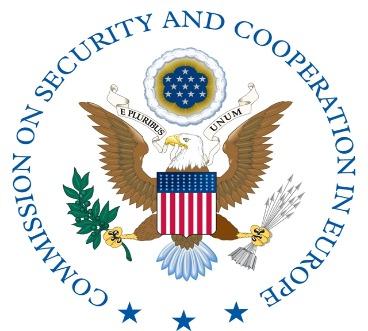Mr. COHEN. Madam Speaker, I rise today to remember and praise the contributions George S. Vest made to U.S. foreign policy. Vest had a long career as a U.S. diplomat during the Cold War. He died on August 24 at the age of 102.
Among Ambassador Vest’s accomplishments was representing the United States while initiating the 35-country multilateral diplomatic process that led to the signing of the Helsinki Final Act in August 1975. This process continues to this day as the Organization for Security and Cooperation in Europe, or OSCE, based largely in Vienna with 57 participating countries. History records the U.S. approach to those negotiations, a Soviet initiative, in late 1972 and 1973, as one of damage control, but Vest, his team and his successors did better than that. Working with our friends and allies in Europe, and engaging our Soviet and Warsaw Pact adversaries directly, they laid the groundwork for overcoming the East-West divide with a direct and frank dialogue based on a comprehensive definition of security that included respect for human rights and fundamental freedoms. At the time, addressing human rights issues in other countries was something diplomats hoped to avoid; over time it became recognized as essential to their security and developing relations. The negotiations also produced confidence- building measures designed to lessen the risk of accidental war during a time of heightened tensions.
Although neither Vest nor most of his fellow diplomats may have foreseen its potential value, their work eventually helped bring the Cold War to a peaceful end 30 years ago, and the OSCE continues to serve as a forum for addressing tension and instability in Europe to this day.
Even in the darker days of the Cold War, this diplomatic process showed many courageous human rights advocates–private citizens–that they were not alone. It gave them the hope to keep fighting for a better world. As long as it remains true to its original Helsinki principles, it still does, and always will.
As the Co-Chairman of the United States Commission on Security and Cooperation in Europe (CSCE), better known as the Helsinki Commission, I believe it is important that we recognize George Vest’s early efforts. The U.S. Helsinki Commission was founded in 1976 and has since helped to ensure that the multilateral diplomatic process Vest started reflects not only U.S. interests but those of any country–indeed any person–who values freedom and democracy. As the elections just held in Russia demonstrate, work still remains.
George Vest was a combat veteran of World War II and later served in various diplomatic positions beyond those related to Helsinki, including as advisor to the North Atlantic Treaty Organization (NATO), the State Department’s liaison to the Defense Department, spokesman for the State Department Under Secretary of State Henry Kissinger, assistant secretary of state for European affairs, and U.S. ambassador to the European Union. Vest ended his career at the State Department as director general of the Foreign Service, recruiting and selecting future American diplomats.
Our debt to this fine public servant, and his legacy of promoting peace over decades, is boundless. I thank his living sons, George S. Vest IV and Henry Vest, for their father’s historic service to our country.







